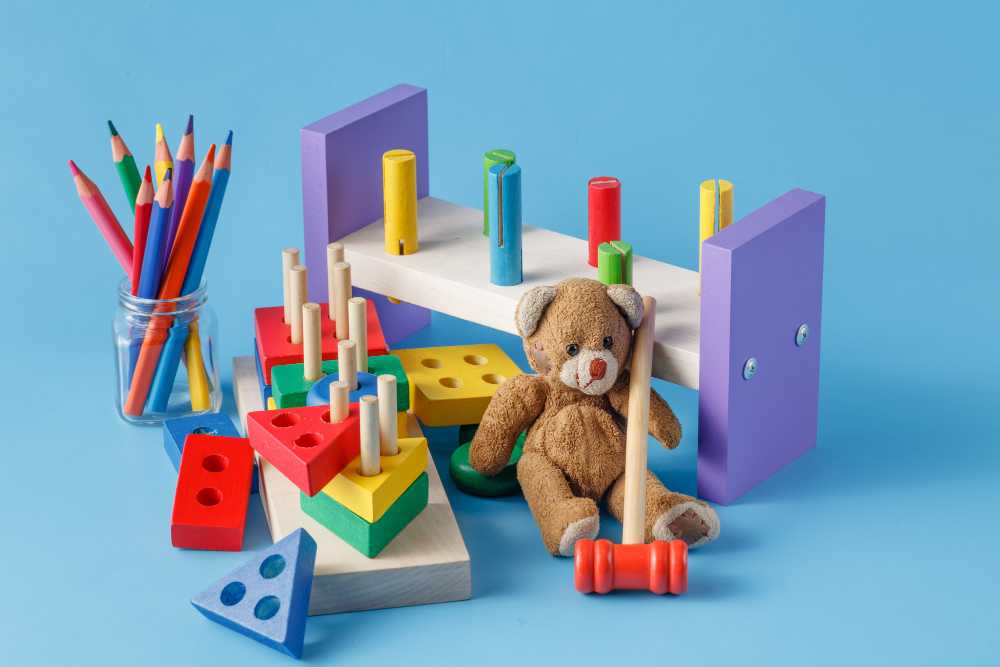The first thing which indicates that a kid lives in the house is toys everywhere. In the freezer, you will find stuffed giraffes, the TV remote will often be replaced by toy cars, and you can discover playdough on your plate on the dining table. The whole house will seem like Annabelle’s own castle. It could get so bad that at some point, parents might think it would have been better if they had one ghost doll-like Annabelle instead of a house full of normal dolls and toys. Undeniably, it’s adorable when you see your little one playing with the toy grabbing it with tiny fingers and pretending like it is another living creature, and smiling. Still, modern studies are suggesting that having too many toys might spoil the kid. The abundance of anything turns it into mundane. So you might want to control the number of toys. While this topic is too hard to discuss with your precious little one, we bring to you how to manage this problem.
Why It is essential to control buying toys and how to do it
Having extra toys can negatively impact your kid’s mental growth. Every kid should access the outside games and has contact with other humans. Doctors have assured that playing outside in the park with other kids is better than playing with toys in a big room. While toys undoubtedly play a crucial role in enhancing imagination power and sensibility, sometimes kids become so engrossed with the toys that they can develop a strong bond with the toy denying the reality. Studies have shown that kids with too many toys have less appetite. Daycares in the US have restricted use of toys for this reason. These are the reasons why your kid should have limited toys.
If you ask our previous generation, You will learn from your father or mother that they used to have one or two toys like some doll that they had bought from some fair or some car gifted to them by a distant relative. Basically, toys were brought occasionally. In today’s world, with changing relationships, Parents and children, and financial growth, this is not followed anymore. I know a kid who buys a toy every time he passes by a mall or a store. While the economic condition of his parents allows him to buy almost any toy he wants, It’s basically because of his temporary attraction to the specific toy which prompts his parents to buy the toy for him. Due to this transient attraction, we buy things that we don’t need from a psychological angle. Even adults do that sometimes like buying tops, dresses, electronic devices as mood lifters. This attraction is more intimidating and irresistible when it comes to babies. But if you want to control toys, you have to handle these situations smartly without being rude. Here are four tips to stop your children from buying any more toys.
- If your child is longing for a toy from the mall or the toy shop, you have to distract them from his will. You can talk to them while pretending to stand in the line, engage in an interesting conversion, and slowly try to take them away from the store. However, direct saying no can make them stubborn.
- You can always postpone the buying and add conditions for the toy. For example, you can tell him/her that you will buy the toy if you observe good behavior for one month. There is a pretty good chance that your kid won’t remember that after one month.
- To distract them, you can promise something else. Give them options like “Either the giant brown Teddy Bear or a visit to the real bear in the zoo.”
- Refer to the toys that your child already has. Then, you can say that what they already have is better than the one in the showcase.
How to handle extra toys of your kid
If your kid already has a lot of toys and you want to know how to handle those, we have something for you.
- Organizing the toys- Organising own things is very important for everyone and the foundation of this habit of an organization should be initiated from childhood. If you are completely irritated with the toys of your kid lying all over the house, you should start developing a habit of asking your kid to organize that. You can arrange big cardboard boxes and tell your kid to store the toys in them Once they’re done playing with them.
- Sorting the toys according to priority level You may notice that even though your kid has 50 or 100 toys, they don’t play with each one of them equally. This is because there are some toys which are their favorite. Other toys are not as interesting as them. You can keep the favorite toys around the kid and put the others in somewhere else. But try to keep them somewhere near where you can bring them back anytime because kids are so unpredictable.
- Contact with NGO and donate the extra toys Toys for the different l age group of kids are not same. A toddler and a 5-year old don’t play with the same thing. As your kid is growing up best use of the old toys is donating them to the NGOs who work with kids development. There are people in this world who cannot afford to buy toys, but almost every kid while growing up needs toys as emotional support. If your kids are done with some toys, You should consider passing it to another kid who may need it but can’t afford it. You will be setting up an excellent example of sharing and helping in front of your kid by this.


